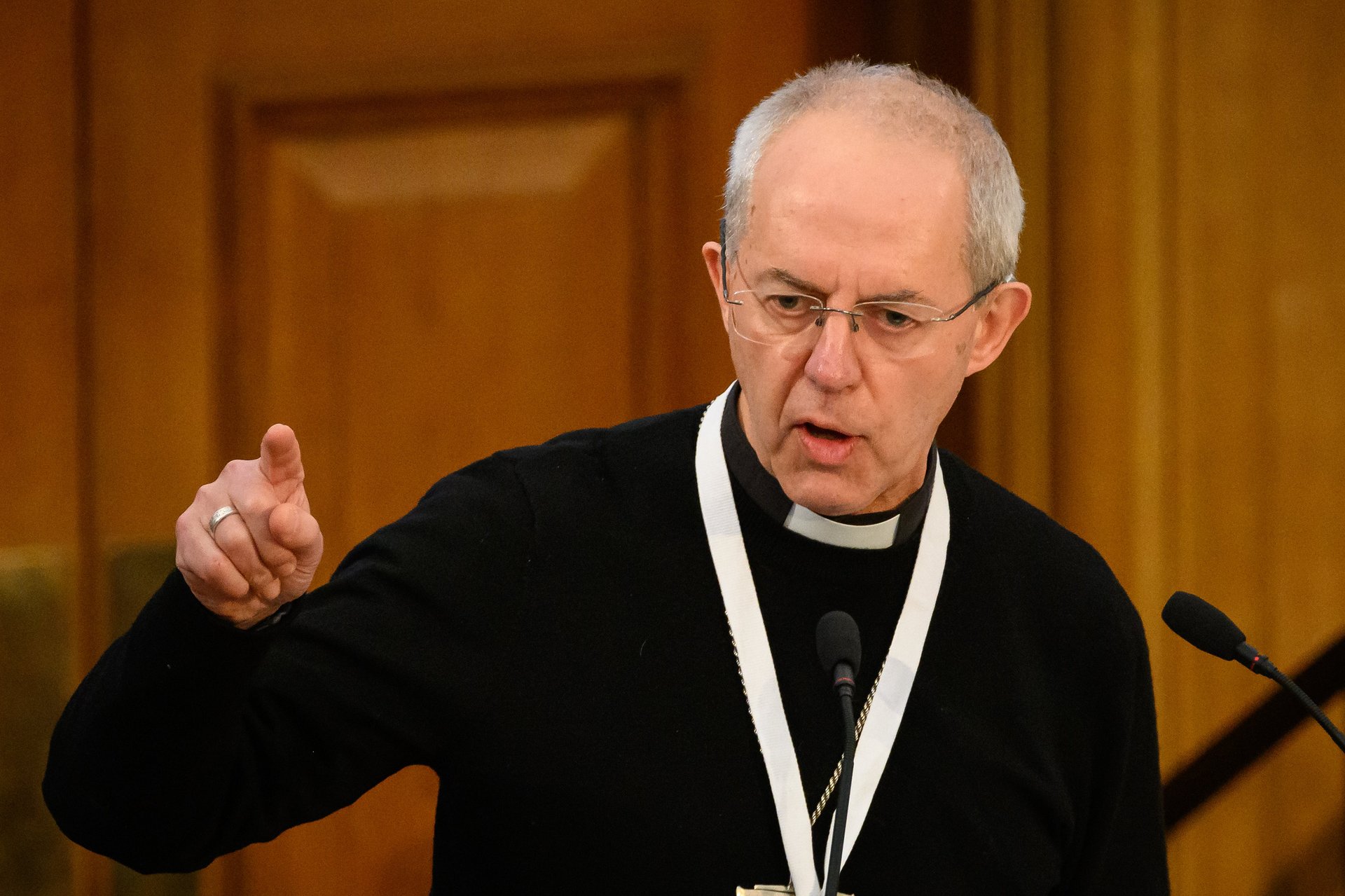The Church of England has lost faith in oil and gas companies
The church is divesting from companies—like Exxon, BP, and Shell—that fail to meet climate goals

The Church of England has come to the conclusion there is no saving fossil fuel companies from the error of their ways when it comes to sustainability and climate change.
Suggested Reading
The Church Commissioners, which manage the church’s £10.3 billion ($13.1 billion) endowment fund, and the Church of England Pensions Board will both be disinvesting their portfolios from oil and gas companies. The divestment announcement, dated June 22, will also affect any other company operating in the oil and gas business that is not taking action to meet the goals set in the 2015 Paris Agreement, which aims to cut greenhouse gas emissions to keep global temperatures from rising above 1.5 degrees Celsius above pre-industrial levels.
This is the second round of oil and gas divestment undertaken by the church since 2021 and affects eleven firms in the portfolios—BP, Ecopetrol, Eni, Equinor, ExxonMobil, Occidental Petroleum, Pemex, Repsol, Sasol, Shell, and Total—after a review showed no fossil fuel company is on track to reach net zero by 2050.
BP and Shell were singled out by John Bell, the CEO of the church’s pensions board, for seeking to maximize short term profit at the expense of sustainability goals. “Recent reversals of previous commitments, most notably by BP and Shell, has undermined confidence in the sector’s ability to transition,” he said in a statement.
In a statement to Quartz, Shell said: “It’s disappointing, but not surprising given its recent change in stance, that the Church of England Pensions Board has taken this decision. Our commitment to becoming a net-zero emissions energy business by 2050 remains as strong as it ever was, and we firmly believe our strategy is aligned with the more ambitious goal of the Paris climate agreement.” BP did not respond to Quartz’s request for comment.
The pension board said it held £1.35 million ($1.7 million) in equity and debt in Shell, and approximately £7 million ($8.9 million) in equity and debt in other oil and gas companies.
Quotable: Reconciling science and faith
“We have long urged companies to take climate change seriously ... Some progress has been made, but not nearly enough. The Church will follow not just the science, but our faith – both of which call us to work for climate justice.” —Justin Welby, Archbishop of Canterbury, and Chair of the Church Commissioners for England, in a June 22 statement.
Making spiritually and morally sound investments
While the issue of conscious investing—and specifically investing dictated by principles of environmental, social, and corporate governance—has recently become a matter of political debate and even censorship, the Church of England has long made moral-based choices in its financial operations. The church’s stance on fighting climate change stems from its mission to protect human life. As such, the organization has traditionally refused to invest in activities harmful to human health, such as tobacco companies or e-cigarette producers.
The church appears to be facing a dilemma that’s common for environmentally conscious investors: Can more change be enacted as a shareholder in a polluting company, or by removing the funds from said company? The church’s pensions board voted against the renewal of Shell’s board of director at the oil and gas giant’s latest shareholder meeting in May, but the decision to disinvest marks a change from shareholder activism.
The church, however, is ready to reverse course should oil and gas companies take meaningful action on fighting climate change. Alan Smith, First Church Estates Commissioner, said in a statement: “If any of these energy companies come into alignment with our criteria in the future, we would reconsider our position. Indeed, that is something we would hope for.”